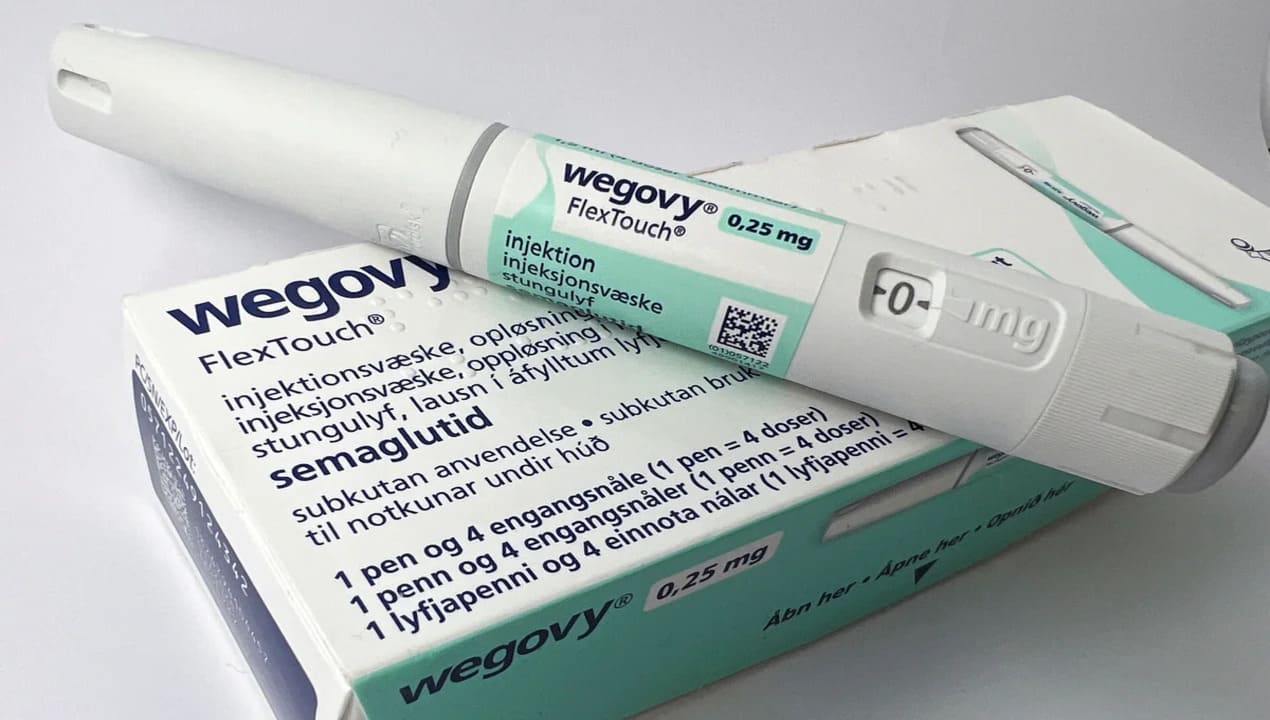
Independent Report – The use of the weight-loss drug Wegovy among American teenagers has increased by 50% as the obesity crisis worsens, according to recent data. More families and doctors are becoming confident in prescribing Wegovy to adolescents struggling with obesity. This trend is reflected in the rise of new prescriptions, which grew to 14.8 per 100,000 teens last year. Compared to 9.9 per 100,000 in 2023, the first full year the drug was approved for use in those aged 12. In the early months of this year, the rate increased further to 17.3 per 100,000.
Despite this growth, the number of teens receiving Wegovy prescriptions remains a very small portion of the estimated 23,000 per 100,000 who are living with obesity. The rate of medication uptake in adolescents is also much slower compared to adults. Dr. Cate Varney, an expert in obesity medicine, finds it promising that more young people are receiving these treatments. But emphasizes that many adolescents with severe obesity still lack access to these medications. She stresses that when lifestyle changes alone are not enough, additional treatment options like Wegovy are necessary.
The data comes from an analysis by Truveta. A health data company that reviewed electronic health records of 1.3 million patients aged 12 to 17 from 30 U.S. health systems. Including over 900 hospitals and 20,000 clinics. The analysis only focused on Wegovy and did not include other GLP-1 drugs such as Ozempic or Eli Lilly’s Zepbound. Which are not yet approved for adolescent obesity treatment.
Wegovy became available for treating adolescents in late 2022 after years of limited success with traditional methods like diet, exercise, and counseling. Currently, about 8 million American teens, or 23% of those aged 12 to 19, have obesity. A significant increase from just 5% in 1980. Obesity in young people greatly raises the risk of developing serious health problems such as type 2 diabetes. Cardiovascular disease, and liver conditions.
In January 2023, the American Academy of Pediatrics recommended strongly that doctors consider prescribing weight-loss medications to children with obesity from age 12 onward. However, the medical community has not universally accepted GLP-1 drugs for adolescents. Some doctors remain cautious due to the unknown long-term safety of these drugs during critical stages of development. There is also concern that treatment with these medications might be required indefinitely.
Also Read : Budget Cuts Threaten Workplace Safety in High-Risk Industries
Another challenge is that many insurance plans do not cover obesity treatments. Including counseling, dietician visits, or GLP-1 medications, limiting access for many families. At the Healthy Weight and Wellness Clinic at Nemours Children’s Hospital in Delaware. About 25% of roughly 2,000 adolescent patients were prescribed Wegovy or another GLP-1 drug last year. The number of prescriptions nearly doubled compared to the previous year.
Patients using GLP-1 medications at the clinic lost an average of 15 pounds within six to twelve months and nearly 30 pounds after more than a year. Still, some teens and their families chose lifestyle changes or older. Less expensive medications due to concerns about potential risks or insurance barriers.
Dr. Thao-Ly Phan, the clinic’s medical director, emphasizes the importance of ongoing monitoring to better understand both positive. And also negative outcomes from these treatments before recommending widespread use.
Despite the growing acceptance of GLP-1 drugs, U.S. Health Secretary Robert F. Kennedy Jr. has expressed skepticism about prescribing such medications widely to children. In a recent federal health report, he criticized the trend as “overmedicalization” of children, citing a lack of long-term safety data and potential risks to growth and metabolism.
Novo Nordisk, the maker of Wegovy and Ozempic. He stated that clinical trials did not show effects on growth or pubertal development in adolescents. The company also highlighted that obesity often begins in childhood or adolescence, supporting their confidence in the safety and effectiveness of GLP-1 medicines.
Similarly, Eli Lilly, which is testing its weight-loss drug Zepbound for adolescent use, reported no evidence to date of negative effects on growth or metabolism from GLP-1 treatments.
Dr. Robert Siegel, a pediatrician at Cincinnati Children’s Hospital, says about 15% of adolescents treated there were prescribed Wegovy or a similar drug from July 2021 to July 2023. Many of these patients also have type 2 diabetes, for which GLP-1 drugs were originally developed. He prefers to try intensive lifestyle changes for three to six months before considering medication.
Dr. Siegel also points out that many primary care providers lack the training and resources to manage these medications properly, especially to monitor possible side effects like muscle loss. He believes that ongoing support for families regarding diet and exercise is essential.
He concludes that GLP-1 medications will likely be needed long-term to maintain weight loss, but current experience with these drugs in teens is still relatively short. More research and monitoring are necessary to ensure their safe and effective use.
Also Read : Exploring a Child’s Imagination Through Storytelling